Throwback Thursday is when we trawl through the That's archives for a work of dazzling genius written at some point in our past. We then republish it. On a Thursday.
By Erik Crouch
“Canadians are the best, as they’re friendly and bargain the least. Australians are good too. It only goes downhill from there.”
So says Yang Ruan, who sits in her shop stuffed with near-perfect imitations of Hugo Boss shirts and G-Star jackets. French, Spanish and Americans drive the hardest bargains. Russians are alright, and the jury is still out on Italians.
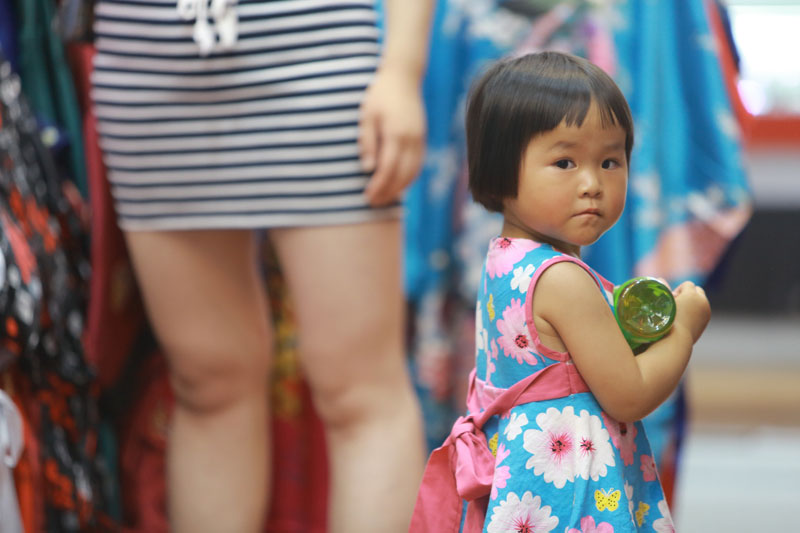
In a flurry of coat hangers, Yang reaches behind racks of Moncler jackets and Polo shirts, producing cheap t-shirts to hang over her branded merchandise. In an instant, the shop transforms from a storage closet at Saks Fifth Avenue to a cheap t-shirt stall.
Yang sits on a plastic stool outside her shop, wearing a black, un-branded t-shirt and jeans, and plays it cool. She and the other vendors chatter and send WeChat messages, eventually reaching the conclusion that the cops poked through a few electronics stalls at the market’s entrance, but didn’t stick around.
Within ten minutes, business has returned to normal, as luxury European and American brand-names come out of their hiding places and the echo of “T-shirt? Shoes? Watches?” resumes. The foreign customers roaming the halls didn’t seem to notice a thing.
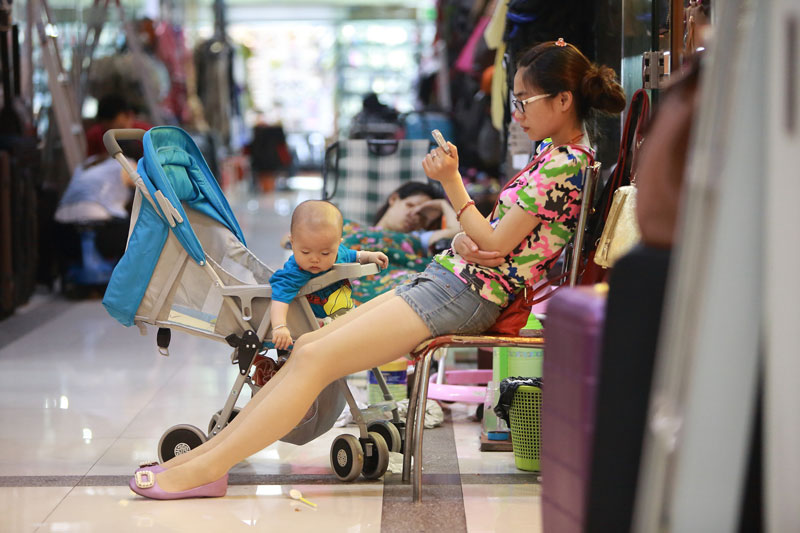
Shanghai’s young market workers, mostly from Anhui Province, had difficulty believing their luck. A foreigner would happily pay several hundred Yuan for a cheap t-shirt from a local factory if it just had “Paul Smith” printed across the front.
Yang – which, at her request, is a pseudonym – was working part-time at a hair salon when she heard of the market through a friend. Within a year, she was renting a stall for RMB1,000/day and sending back hefty sums to her family in Anhui.
“Every year after 2010 got worse,” Yang says as foreigners trickle through the market’s halls. In the years after the Expo and the Olympics, a decline in short-term, easily duped tourists and the rise of online fake shops have been stiff challenges to the markets.
There is still money to be made, but it doesn’t come as readily as it did six years ago. Yang’s trick has been her language skills. While we sit in her shop, a family begins sifting through her merchandise, discussing in German.
“He said it’s good,” Yang translates quietly, “and she thinks it’s cheap. Now they’re talking about the price.”
When the Germans switch to English to negotiate the sale, they don’t realize their cover has been blown. Yang has been selling in the marketplace since she was 14, and has developed a strong command of English, workable French and a massive vocabulary of keywords and prices in nearly every frequently-used language of the market’s customers. She keeps a children’s Italian textbook buried under a pile of hats, which she periodically fills out during lulls in the market.
Vendors who have worked at the market for several years have found ways to stay afloat as demand slows. Some stock winter clothes in the summer, at higher prices, and tell customers they’re on sale. Others obsess over fashion trends and try to outpace rivals by having the latest styles. Some toss out their clothes and switch to selling phones and watches, while others do the opposite.
The most important thing is to buy the cheapest goods possible and buy in bulk. Know your factories: those in Fujian make the highest quality fakes, but at premium prices. Shandong is the best for leather. Beijing has a good selection, but Guangzhou offers the widest variety at the lowest prices.
At the start of each season, Yang takes the 16-hour train ride south to browse Guangzhou’s fake factories, and decides what looks best for the coming months. If she likes one style of t-shirt, she buys it in four sizes (small to XL) four color variations per size, and ten articles each, 160 shirts in all. In a single long-weekend in Guangzhou, Yang will pay for 5,000 t-shirts, which will arrive in Shanghai a few days later via mail.
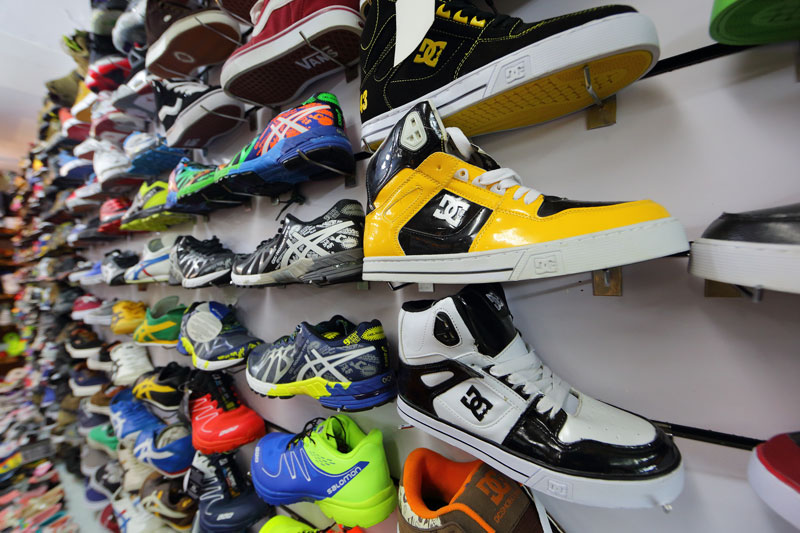
Other vendors aren’t as fortunate. Those without personal connections to factories have to rely on middlemen in Shanghai, who add high fees onto each purchase. Some workers have no control over their stock, and simply work as salesmen for a shop owner, making a daily wage and slight commission. Others have the misfortune to stock brands that police have been told to look for, and get busted.
Shanghai’s fake markets aren’t exactly hidden in some kind of seedy underbelly. They inhabit high-rise office buildings and popular subway stations, yet legal interference is, at its strictest, sporadic. Police come to the markets fairly often, but will walk past a dozen rows of iPhones and European ski-jackets without question as they search for Prada, Louis Vuitton and a handful of other specific brands.
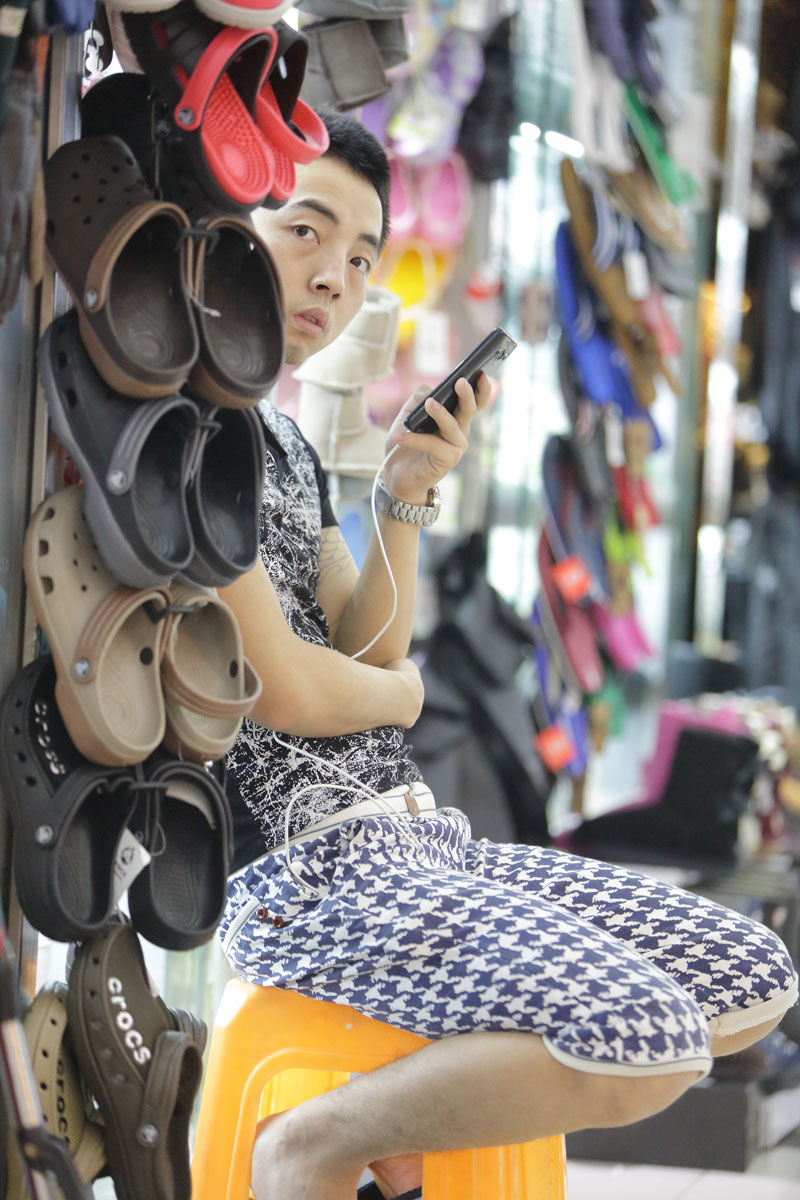
Some vendors keep a supply of contraband goods hidden behind fake walls or outside of the market space, but stocking such goods is too much of a risk for many sellers, who share rumors of massive fines and prison time for serious offenders.
“The police checked four shops yesterday, but for me it’s okay,” says Yang. They have entered her shop before, but haven’t caused problems. The authorities’ arrival is a time to briefly cover-up any blatantly branded merchandise with no-name t-shirts, but normal business resumes quickly.
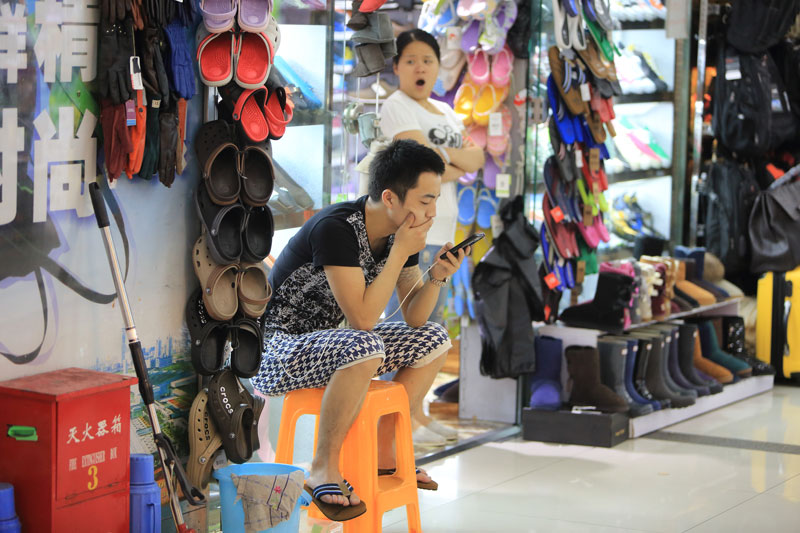
The “T-shirt? Shoes? Watches?” chant bounces through the halls. But while the authorities are gone, the problems aren’t. These days, vendors often outnumber the customers. Stalls overflow with high-quality fakes shipped in from a thousand miles away, yet workers are lucky if they can sell a handful of t-shirts and make their shop’s daily rent. Some weigh up the risks of selling their counterfeit goods on Taobao, while others talk about moving to Guangzhou where (rumor has it) fake markets are still prosperous.
Yang looks back fondly on the golden years, when showing up in Shanghai with a pile of cheap shirts with mysterious English words printed across the front was enough to earn a killing, and when Nikon-draped foreigners gleefully forked over hundreds of Yuan for fifty kuai worth of merchandise. Those times have passed now, as Taobao has taken over, the police are on the prowl, and the Canadians have packed up and gone home.
This article first appeared in the July 2014 issue of That's Shanghai. To see more Throwback Thursday posts, click here.
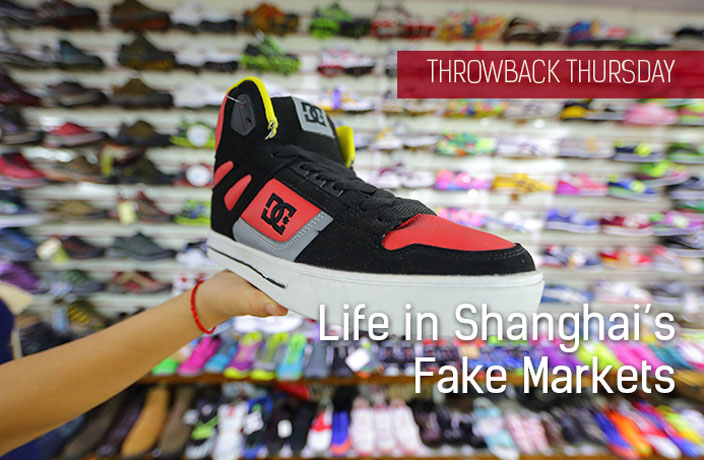




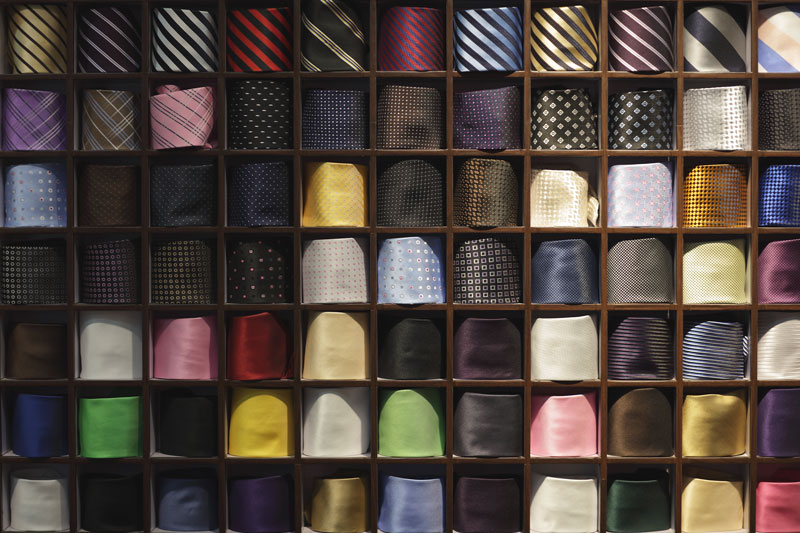
















0 User Comments